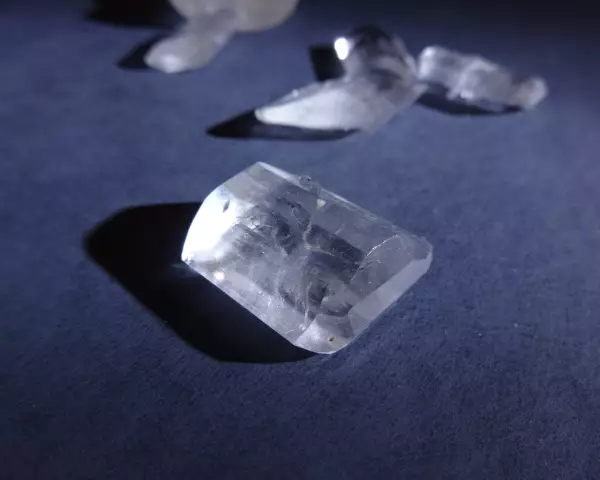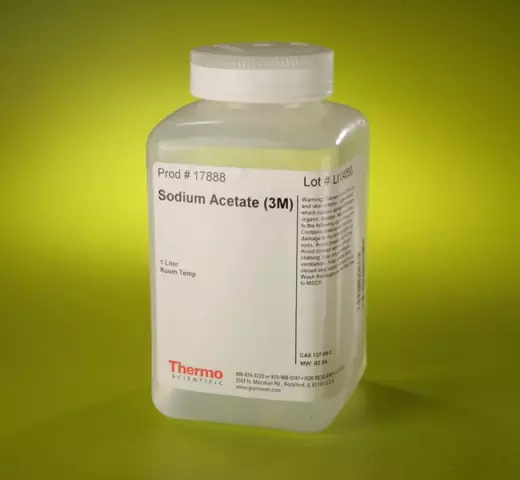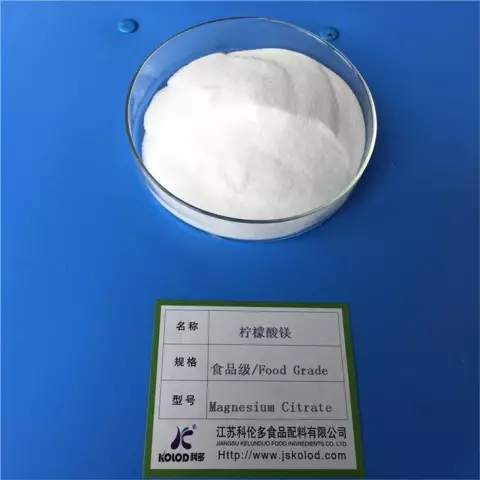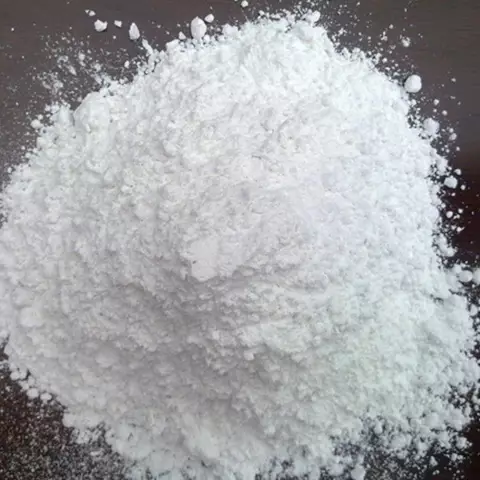- Author Rachel Wainwright wainwright@abchealthonline.com.
- Public 2023-12-15 07:39.
- Last modified 2025-11-02 20:14.
Sodium citrate

Sodium citrate is a food supplement E331, a sodium salt of citric acid with a specific salty-sour taste.
Other common names for sodium citrate are sodium citrate, sodium citrates, disodium citrate, trisodium citrate.
Sodium citrate looks like a white crystalline powder. It dissolves well in water and poorly in alcohol, it is well stored. The chemical formula of the additive E331 is Na3C6H5O7.
Sodium citrate is obtained by neutralizing citric acid with caustic soda or another source of sodium.
Sodium citrate is an officially approved food additive in Russia, Ukraine and Europe. In addition, E331 is successfully used in medicine.
Sodium Citrate - Food Applications
E331 is used in the food industry as a preservative, stabilizer or flavor enhancer.
The main purpose of sodium citrate is to enhance the taste of carbonated drinks that mimic the taste of citrus fruits. Renowned energy drinks also contain sodium citrate.
E331 is added to yoghurts, marmalade, soufflé, marshmallow, jelly, processed cheese - to regulate the acidity level.
Sodium citrate can be used as a seasoning for food.

The additive is used for sterilization, pasteurization of milk, the production of fermented milk products, canned food based on milk, milk powder, infant formula for children and other products, the production of which involves prolonged heat treatment of milk.
The use of sodium citrate in medicine
By adding E331 to donated blood, doctors ensure its safety - thanks to sodium citrate, it may not clot for a long time. Sodium citrate is also used to preserve other protein preparations and as an enhancer of the action of ascorbic acid.
Citrate prevents changes in pH levels, which is why it is used to relieve heartburn. The substance is prescribed for renal acidosis, cystitis (to alleviate symptoms).
The pharmaceutical industry uses sodium citrate in the production of instant pharmaceuticals.
The substance often includes the composition of drugs that relieve symptoms of hangover syndrome, is used as a laxative.
The harm of sodium citrate
A person, after consuming products and medicines containing E331, may experience nausea, vomiting, increased blood pressure, loss of appetite, and abdominal pain. At the same time, harm is most likely caused by sodium citrate after the use of drugs, since the content of the additive in them is many times greater than in food. No cases of sodium citrate poisoning have been recorded, therefore it is believed that this supplement is harmless to humans.
Sodium citrate in its pure form is non-toxic, does not cause negative reactions when it comes into contact with the skin, but can irritate the respiratory tract if the powder is accidentally inhaled.
Found a mistake in the text? Select it and press Ctrl + Enter.






